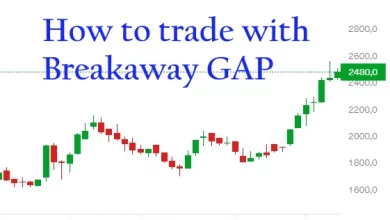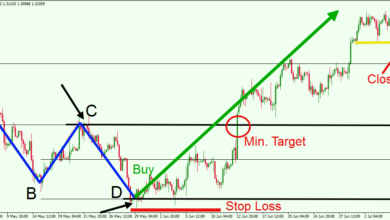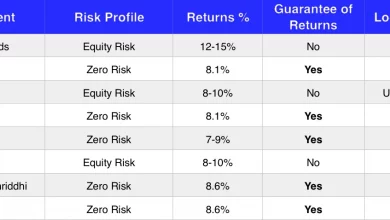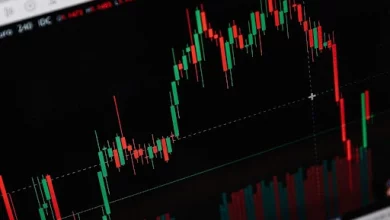WHAT IS PROP TRADING?
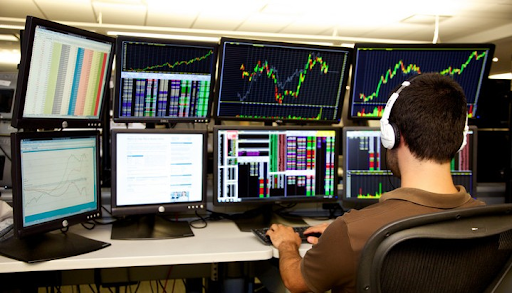
Prop Trading happens when a bank or business trades stocks, derivatives, bonds, commodities, or other financial products in its account, rather than utilizing money from customers. This occurs when financial institutions such as banks, hedge fund managers, and brokerage companies opt to trade for competitive pricing gain rather than seek profits by trading on behalf of their clients. As a result, the company may benefit from the entire deal rather than simply the commission it earns from executing trades for clients.
Traders in the proprietary trading purchase and sell assets using the firm’s own money to earn a profit; trading can be directional (predicting whether the price of a security will rise or fall) or market-making (acting as both the buyer and seller of securities and making a profit on the bid-offer spread).
Hedge funds, asset management businesses, commodities corporations like Glencore and Vitol, and small/independent trading firms all engage in prop trading, as did big banks before the 2008 financial crisis. In practice, the term “prop trading” refers to smaller, independent companies that specialize in market-making.
Table of contents
- A Brief Overview Of The Prop Trading
- What is the process of Prop Trading?
- Types of Proprietary Trading Firms
- Benefits of Proprietary Trading
- Prop Trading Rule: The Volker Rule
- Prop Trading Vs Hedge Funds.
- How Much Money Do You Need To Be A Prop Trader?
- How Do Prop Traders Make Money?
- The Top Proprietary Trading Firms
- The Prop Trading drawbacks
- Final Thought On Prop Trading
A Brief Overview Of The Prop Trading
This is a sort of trade that banks and other financial organizations participate in to make extra money. In terms of market intelligence, such businesses frequently have an advantage over the typical investor. Another benefit is the availability of advanced modeling and trading tools. Instead of utilizing their clients’ money, these financial organizations utilize their capital to complete financial transactions. Prop trading, while hazardous, may be extremely profitable for financial institutions since they receive all of the profits from a transaction rather than simply a commission for executing positions.
Despite its reputation for being hazardous, proprietary trading is typically one of a commercial or investment bank’s most profitable businesses. Prop traders and hedge funds were among the companies investigated for contributing to the 2008 financial crisis. To restrict how private traders can work, the Volcker rule was created, which severely curtailed proprietary trading. Avoiding potential conflicts of interest between the firm and its clients was a key issue. Prop trading does not assist individual investors since it does not include deals conducted on behalf of clients.
To optimize gains, prop traders utilize methods including index arbitrage, merger arbitrage, volatility arbitrage, and global macro-trading. To aid them in making important judgments, proprietary traders have access to sophisticated tools and data pools.
Prop trading businesses typically have a competitive edge over regular investors because they have exclusive access to key market data that helps them make better decisions. Furthermore, big institutions benefit from more modern trading tools and sophisticated algorithms.
Here is all you need to know about prop trading:
What is the process of Prop Trading?
Prop trading, in practice, refers to smaller, independent firms that specialize in market-making. This happens when a client wishes to trade a big quantity of a single security or a security that is extremely volatile. A prop trading desk will serve as the buyer or seller, beginning the opposite side of the client’s deal, because there may not be many buyers or sellers for this sort of trade.
Prop trading has been known to provide a major percentage of earnings (and losses) for investment banks like Goldman Sachs and Deutsche Bank. Bonds, derivatives, currencies, stocks, commodities, and other financial products can all be used in prop trading. Prop trading businesses typically have a competitive edge over regular investors because they have exclusive access to key market data that helps them make better decisions.
Types of Proprietary Trading Firms
Prop trading businesses are divided into three categories:
- Churn and Burn
Thousands of dollars are paid for “training” and the opportunity to trade a tiny amount of money with these businesses. You don’t get a regular paycheck, but you get to retain a large portion of your profits (well over 50 percent). This one is only for day traders who want to “go pro,” so avoid it at all costs.
- Slightly More Legitimate
These companies will provide you with a little more real-world instruction in exchange for a monthly subscription to access their data and trade. Because the monthly charge is frequently in the hundreds of dollars, you begin each month “in the red.” You keep a large portion of your profits while earning no base wage.
- Legitimate Prop Trading Firms
These organizations provide you with a basic income and benefits, as well as training and placement in a team that allows you to advance and flourish. They hire straight out of universities and poach experienced traders from other companies. Employees at these companies keep a considerably lower share of earnings (10-30%), but it’s also a long-term profession that isn’t meant to abuse you.
These businesses combine their resources, giving traders considerably greater cash to work with. They also create a significantly greater number of trades as a group, which can lead to better exchange rates. Traders at these businesses also have greater access to technological infrastructure, algorithms, and data than those who work on their own.
Benefits of Proprietary Trading
- The major advantage of prop trading for a financial institution or bank is that it keeps all of the profits. When a brokerage company or financial institution trades on behalf of its customers, it earns money through fees and commissions, which might be a tiny proportion of the total amount invested or the gains made. Unlike when serving as a broker and collecting commissions, prop trading allows the company to keep 100% of the earnings. The bank reaps the most profits from the deal as a private trader.
- For experienced traders looking to expand their skill set, prop funds or prop shops might be an appealing option. It can, however, help novices because you don’t need a lot of money to get started. Prop companies employ their cash, so there’s no chance of losing your own money. Furthermore, most prop companies safeguard their traders from large losses by limiting capital outflow following the risk tolerance of the company.
- Another advantage of proprietary trading is that it allows a company to keep a stockpile of securities for future usage. If the company purchases securities for speculative purposes, it can subsequently sell them to clients who are interested in purchasing them. Clients who want to sell short can also borrow the securities.
- Prop trading allows businesses to build up a stockpile of securities. When a financial institution buys assets on the open market, it might provide an unexpected benefit to its clients. Clients who wish to short sell the securities can also borrow them. An inventory of securities can help companies plan for low or tight markets when buying and selling securities on the open market may be more difficult.
- Prop traders have access to more sophisticated platforms and other automated software which also enables them to engage in high-frequency trading. In most prop companies, the platforms used are exclusively in-house and only available to the firm’s traders. With more advanced trading technology, prop traders can develop strategies and test the likelihood of success by running demos. However, retail trading is constantly advancing the technical quality of trading platforms.
Prop Trading Rule: The Volker Rule
Hedge funds and prop traders were among the financial entities blamed for creating the 2008 financial crisis. In April 2014, the Volcker Rule, a federal law, was enacted to govern how proprietary traders worked.
The Volker Rule attempts to prevent companies from making speculative investments that do not benefit their customers directly. Market volatility was thought to be caused by these high-risk investments. Avoiding potential conflicts of interest between firms and their clients was a key concern.
The Volker Rule likewise seeks to limit the amount of risk that financial firms are allowed to accept. It prohibited banks and entities who already own a bank from participating in certain financial activities with their very own account, such as prop trading or owning or investing in a hedge fund or private equity fund. As a result, the majority of big banks have either separated or terminated their prop trading operations from their basic banking operations. The service is now available as a stand-alone option from specialized prop houses. In the financial services business, the Volker Rule is often seen as unfavorable.
The Federal Deposit Insurance Corporation (FDIC) announced in June 2020 that it will remove some of the Volker Rule’s limitations.
Prop Trading Vs Hedge Funds.
Hedge funds and prop trading businesses are distinguished by the fact that hedge funds seek cash from outside investors and utilize their customers’ money to engage in financial markets, whereas prop traders employ the firm’s funds. Hedge funds are compensated for generating profits for their customers on these investments.
Prop trading businesses, unlike hedge funds, get to retain all of the money they make. Rather than responding to their clients, they trade for themselves to improve the firm’s balance sheet. Clients of a company do not benefit from the turnover generated by prop trading, unlike in a hedge fund. As a result, because prop traders do not deal with client funds in the same manner that hedge funds do, they can afford to take larger risks.
Prop trading businesses earn on market-making, but hedge funds gamble on securities price changes, therefore their trading techniques differ as well. Both businesses use algorithmic trading and quantitative methods, but prop trading uses them more. Hedge funds and prop trading businesses are both subject to the Volcker Rule, which makes them both targets.
How Much Money Do You Need To Be A Prop Trader?
Prop traders do not need any money, but the company will keep 100% of the earnings produced by the trader. They usually pay the prop trader a fixed wage as compensation. The majority of businesses charge a few hundred dollars each month to utilize the site.
How Do Prop Traders Make Money?
The majority of prop traders make money by receiving a percentage of the profits generated by trading on behalf of a prop business. Returns can be doubled depending on how much more money a trading business provides. Many prop trading businesses provide a base pay plus a performance incentive.
The Top Proprietary Trading Firms
I won’t attempt to identify all of the prop trading businesses because there are dozens (maybe hundreds?) of them. It’s also difficult to compile a precise list because several hedge funds employ similar methods and the boundary between them isn’t always obvious.
Large hedge funds like Citadel and D.E. Shaw, for example, have their own “prop trading” divisions and may employ techniques comparable to those employed by much smaller trading companies. Jump Trading, Jane Street, Tower (TTG), Five Rings, Hudson River Trading (HRT), DRW, Optiver, Akuna, IMC, and TransMarket Group (TMG) are among the leading smaller/independent market-making businesses.
There are also large/public organizations, such as Virtu [VIRT], that do a lot more than prop trading but still have a position in the market.
The Prop Trading drawbacks
Because exit possibilities are limited, you should not join a prop trading business immediately out of college if you aren’t convinced you want to be a trader.
It’s easy to be duped by shady “prop trading businesses” who don’t pay you a base wage and instead demand payment for training or data access.
It will be tough to get another work in the sector if you do not do well, therefore you will most likely have to change fields.
You don’t actually “construct” anything. You may point to Deal A or Company B and explain how your work influenced it, at least in areas like investment banking and private equity. You’ll have a hard time explaining whatever you do in prop trading to regular folks.
In a nutshell, prop trading is a more severe form of sales and trading, thus the comments made in the sales and trading vs. investment banking essay are much more applicable. It makes sense if you have an insatiable desire to trade, are math/CS/tech-inclined, and know you want to do so for a long time.
Final Thought On Prop Trading
Prop trading is when a company invests its own money in a specific financial instrument or group of products to strengthen its balance sheet. With market experience, a strong educational background, and shown investment talents, you can work in a prop trading business.
Before looking for chances with prop trading businesses, ambitious investors should hone their abilities with a reliable online broker by only going for the best proprietary trading firms that suit them

